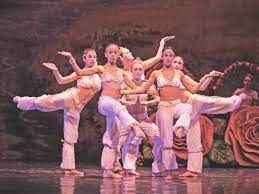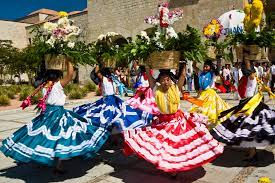December 2021 Chapter Meeting: Tchaikovsky's "The Nutcracker"
- fredericksburgrecorders

- Dec 5, 2021
- 3 min read
Updated: Dec 6, 2021
GREATER FREDERICKSBURG CHAPTER OF THE ARS
December 5, 2021 Chapter Meeting
Chapter Representative: Dr. Kelly Kazik
Technical officer: Jarrett Rodriguez
Conductor: James Kazik
Website/Blog: https://fredericksburgreco.wixsite.com/mysite
Instagram: @fredrecorder
Rumble channel: https://rumble.com/c/FredericksburgRecorders
The Nutcracker...for recorders
To watch the video of the zoom meeting, click here: https://youtu.be/jyhCqBmLKyI

Pyotr Ilyich Tchaikovsky (1840-1893)
Photo credit: BBC Music Magazine
Pyotr Ilyich Tchaikovsky as born in 1840. He was musically inclined at a young age and received piano lessons at age 5. He was allowed to take piano lessons through his teen years, but his father saw no money in being a professional musician. Tchaikovsky was encouraged to become a civil servant. In 1862 Tchaikovsky enrolled in the first class of the St. Petersburg Conservatory. He graduated in 1865. He is one of the first Russian composers to gain international fame. His musical output includes: symphonies, concerti, ballets, operas, and chamber music. His personal life was a mess. Tchaikovsky in 1893, nine days after conducting the premier of his Sixth Symphony. Tradition says he died of cholera, but there is evidence to suggest he took his own life.
The Nutcracker…
The music for the ballet was composed in 1892. The original choreography was done by Marcus Petipa and Lev Ivanov. The inspiration for the story comes from E.T.A. Hoffman’s, “The Nutcracker and the Mouse King.”
The ballet is in two acts. The first act drives the main plot of the story and consists of two scenes. In the first scene Clara, receives a gift of a nutcracker from her weird uncle. In the second scene Clara sneaks downstairs to check on her doll. She falls asleep and the nutcracker comes alive and fights the evil mouse king.
In the second act the nutcracker leads the dreaming Clara to the magical land of the sweets were gratuitous acts of dancing occur. Most of the music we will be playing today comes from act 2.
The first performance of the ballet was not successful. Most of the criticism seems to have been leveled at the “plot” of the ballet. Critics believed it was not faithful to the story. Also taking a heavy share of the criticism was the casting a choreography. Many of the parts were danced by children. And the critics did not spare the children’s feelings. One child, while praised for her work on point was called “corpulent” and “pudgy”. Tchaikovsky’s music however, retained popularity in the form of a 20 minute suite.

“Miniature Overture” from the Nutcracker Suite, arr. Burndrett (SATB) Photo credit: The Denver Post.
The Miniature Overture is actually the overture to the ballet, act 1. Some ballet companies will have some expository dancing during the overture.
Performance https://www.youtube.com/watch?v=sF2fn8FDqEQ
Play alongs:
YouTube: https://youtu.be/gbA3EA3005U
Score and parts (purchase from sheetmusic plus): https://www.sheetmusicplus.com/title/miniature-overture-fantasia-from-nutcracker-for-recorder-quartet-digital-sheet-music/21314312

“March” from the Nutcracker Suite, arr. 8notes.com (SATB) Photo credit: The Washington Post
The March is in act 1. During the March the children line up to receive their Christmas presents and everyone is generally paryting.
Ballet performance, Royal Ballet: https://www.youtube.com/watch?v=lfCSlE2tQco
Play alongs:
YouTube:https://youtu.be/2LiL5op4ExA
Score: https://www.8notes.com/scores/37167.asp

“Dance of the Sugar Plum Fairy” from the Nutcracker Suite, arr. Burndrett (SATB) Photo credit: The English National Ballet
The Dance of the Sugar Plum Fairy occurs at the beginning of act two in the land of sweets. Clearly, the sweet being invoked is the sugared plum. The role was originally danced by a child, (see the corpulent child above), and was cut for a time from the production. Eventually the role was migrated to an adult and the number put back in.
Ballet performance Nina Kaptsova: https://www.youtube.com/watch?v=Wz_f9B4pPtg
Play alongs:
YouTube:https://youtu.be/txdhjNVsO0s
Score and parts (purchase from Sheetmusic plus): https://www.sheetmusicplus.com/title/dance-of-the-sugar-plum-fairy-fantasia-from-nutcracker-for-recorder-quartet-digital-sheet-music/20023601

“Arabian Dance” from the Nutcracker Suite, arr. Burndrett (SATB) Photo credit: nutcrackerballet.com
The “Arabian Dance” happens about halfway through the second act. The “Arabian Dance” is invoking coffee...because if you are all sugared up, the next thing you need is caffeine.
Ballet performance, Moscow Ballet: https://www.youtube.com/watch?v=-sEgjXxjxIw
Play alongs:
YouTube: https://youtu.be/WAWbjVle6zQ
Score and parts (purchase from sheetmusic plus): https://www.sheetmusicplus.com/title/arabian-dance-fantasia-from-nutcracker-for-recorder-quartet-digital-sheet-music/21314903

“Trepak” from the Nutcracker Suite, arr. Burndrett (SATB) Photo credit: visitindiana.com
The “Trepak” or Russian Dancers happens shortly after the “Arabian Dance”. The Russian Dancers represent peppermint. I once saw a production where the Russian Dancer was replaced by a solo dancer in a clown costume and I thought, “what is this dance about? Also, I hate clowns.”
Ballet performance with Russian men jumping and dressed in white and red to look like a candy cane: https://www.youtube.com/watch?v=qiiuN9eAy9Y
Play alongs:
YouTube:https://youtu.be/p7ScSHnCOdc
Score and parts (purchase from sheetmusic plus): https://www.sheetmusicplus.com/title/trepak-fantasia-from-nutcracker-for-recorder-quartet-digital-sheet-music/20927022






Comments